-
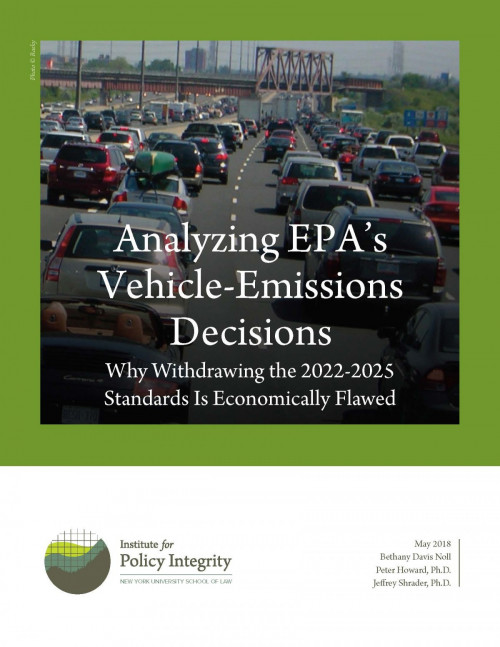
Analyzing EPA’s Vehicle-Emissions Decisions
Why Withdrawing the 2022-2025 Standards Is Economically Flawed
The Environmental Protection Agency sets greenhouse gas emissions standards for cars and light trucks, and it periodically reevaluates these standards to make sure that car manufacturers can comply. In April 2018, EPA withdrew its previous determination that standards for model year 2022–2025 vehicles were appropriate and would improve public welfare, now saying that more recent information suggests that the standards are too stringent. Our policy brief shows that EPA’s claim—that new information indicates that the assumptions underlying the previous determination are unrealistic—is not supported by the evidence. In fact, the opposite is the case. Recent trends in fuel prices, vehicle sales, automaker compliance, and safety all indicate that the existing 2022–2025 standards can be met at low cost while delivering large benefits to consumers and the economy. EPA’s decision to withdraw the standards will instead cause regulatory uncertainty that will hurt the automotive sector while also harming the environment.
-
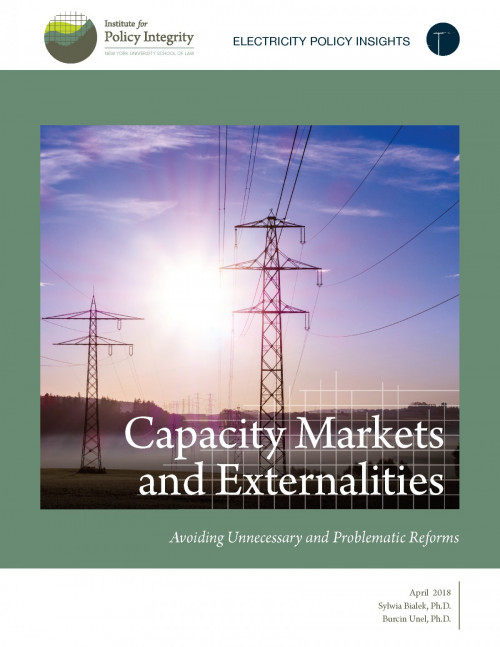
Capacity Markets and Externalities
Avoiding Unnecessary and Problematic Reforms
Many states are taking action on climate change by paying zero- and low-emitting electricity generators for avoiding the emissions that fossil-fuel-fired resources would otherwise emit. These “externality payments” help level the playing field between emitting and non-emitting generators. Critics of these policies argue that these payments might negatively affect the efficiency of wholesale electricity markets by reducing capacity prices, which heavily affect how generators enter and exit the market. Our report shows why the premises underlying recent reforms, which seek to shield capacity markets from the potential price impact of pollution externality payments, are flawed.
-
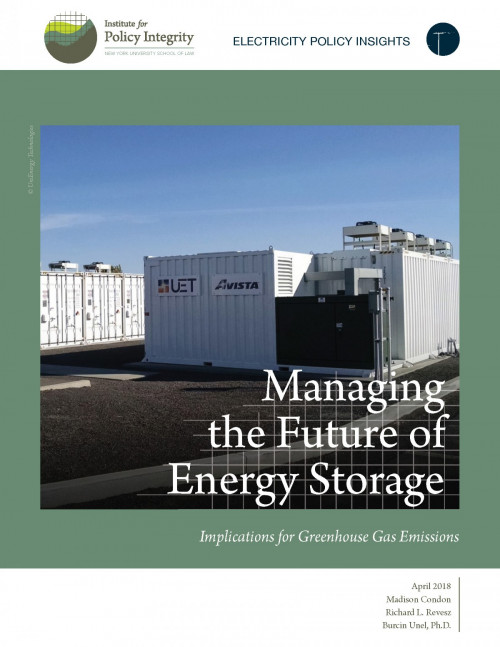
Managing the Future of Energy Storage
Implications for Greenhouse Gas Emissions
Many policymakers assume that increasing deployment of energy storage will automatically reduce greenhouse gas emissions, in part by helping to integrate renewable energy resources with intermittent and variable generation. This report, published in the Harvard Environmental Law Review, explores situations in which energy storage systems can in fact lead to increased emissions, and offers reforms to correct for poor incentives while ensuring that energy storage can provide the maximum benefit possible to the grid.
-
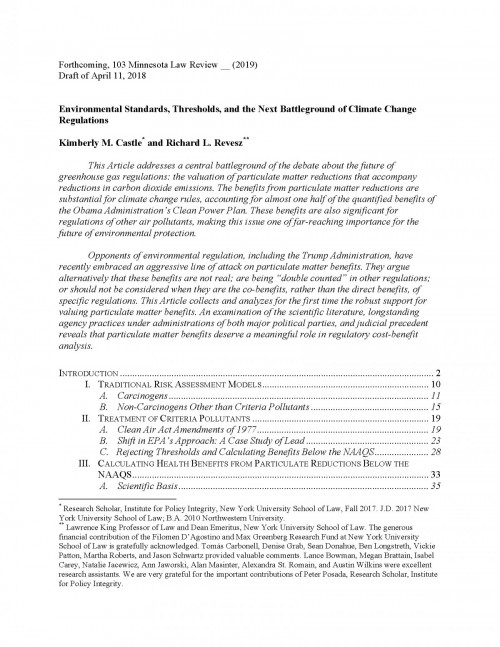
Environmental Standards, Thresholds, and the Next Battleground of Climate Change Regulations
Regulations to curtail climate change have the additional benefit of reducing air pollution by accelerating the shift away from carbon-intensive and high-polluting energy such as coal. The benefits from reducing just one air pollutant – particulate matter – account for almost half of the quantified benefits of the Obama Administration’s Clean Power Plan. Regulatory opponents have launched an aggressive attack on the use of these benefits to justify climate change regulations. They claim that these benefits are not real, are accounted for in other regulations, or should not be considered because they are indirect benefits. This article, published in the Minnesota Law Review, collects and analyzes for the first time the robust support for valuing particulate matter and other air pollution reduction benefits. Following an examination of the scientific literature, longstanding agency practices under administrations of both major political parties, and judicial precedent, the authors conclude that particulate matter benefits deserve a meaningful role in regulatory cost-benefit analysis.
-
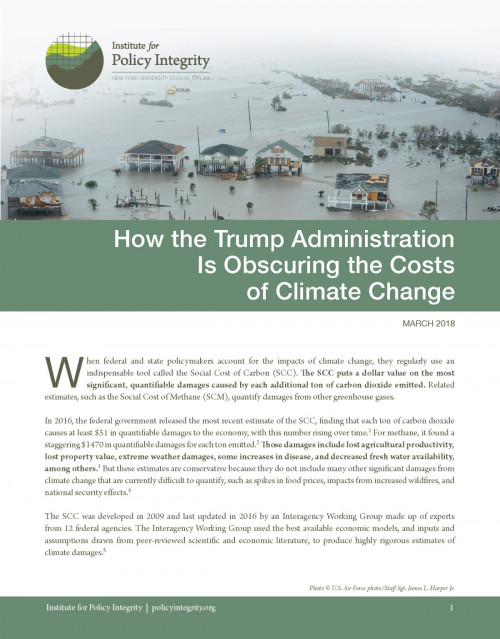
How the Trump Administration Is Obscuring the Costs of Climate Change
When federal and state policymakers account for the impacts of climate change, they regularly use a tool called the Social Cost of Carbon (SCC). The SCC puts a dollar value on the most significant, quantifiable damages caused by each additional ton of carbon dioxide emitted. The most recent estimate of the cost is at least $51 per ton and rising over time. But now, turning its back on years of work, the Trump administration has disbanded the federal group that developed the SCC, and produced a new “interim” estimate claiming that each ton of carbon dioxide causes as little as $1 in climate damages. This issue brief describes how the Trump Administration reached this misleading number by ignoring the interconnected, global nature of our climate-vulnerable economy and obscuring the devastating effects that climate change will have on younger and future generations. Though the administration has been proposing rollbacks of environmental rules using this problematic SCC estimate as justification, we explain why federal agencies and state governments should continue using the most recent estimate by the Interagency Working Group that developed the SCC.
Viewing all publications in Climate and Energy Policy
